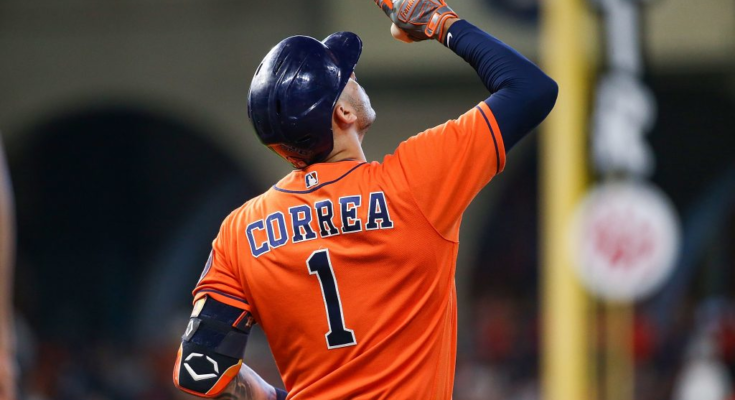Free agency is back, and the still-unsigned Carlos Correa will return to the forefront of the market as he angles for a contract north of the 10-year, $325MM deal Corey Seager signed in Texas prior to the lockout. Correa’s former team, the Astros, has yet to completely move on from the possibility of keeping him in Houston. Owner Jim Crane told Mark Berman of FOX 26 in Houston last night that the team plans to circle back to Correa now that the market has reopened (Twitter link).
“I’m sure we’ll engage one more time and we’ll see what happens,” says Crane. “Carlos is a great player. He’s a one-of-a-kind player. I thought we made a good offer before. We’ll see where they’re at on their side. I’m sure we’ll talk to them shortly.”
The prior offer referenced by Crane was reported by Berman back in November to be five years and $160MM — a hefty sum but one that always felt well shy of where Correa’s eventual payday would land. Correa has already reportedly received and rejected a 10-year, $275MM offer from the Tigers, which only serves to underscore the manner in which the ’Stros would need to substantially alter their own proposal in order to keep him in the fold.
On the subject of that Tigers offer, which came prior to Detroit’s eventual signing of Javier Baez, MLB.com’s Jon Morosi adds some additional context. Detroit not only put forth a guaranteed $275MM sum but also included three opt-out clauses over the life of the deal, in addition to an annual bonus of $10MM for finishing in the top five of MVP voting. Correa’s sights have been more focused on topping Seager and possibly on topping Francisco Lindor’s $341MM guarantee with the Mets, however. He reportedly sought $330MM or more prior to the lockout.
There’s been some speculation that, in light of a sizable offer from the Tigers, perhaps Detroit could follow the Rangers’ lead and ultimately sign two of the market’s top shortstops this winter. Baez has plenty of experience at second base and third base, and the Tigers’ payroll is largely free and clear once Miguel Cabrera plays out the final two years of his current deal. Baez and fellow offseason signee Eduardo Rodriguez are the only players on the books in 2024 and beyond, and it’s possible that even Baez won’t be around by that point. His contract contains an opt-out clause after the 2023 season.
However, The Athletic’s Jim Bowden reports that Tigers owner Chris Ilitch is not comfortable with another contract of that magnitude hitting the books, which throws some cold water on the possibility of a Baez/Correa double-play tandem. That’s a particularly unsurprising revelation in light of this week’s report that Ilitch was one of four owners who initially voted against even raising the league’s proposed luxury-tax threshold to $220MM. (It eventually landed at $230MM in 2022, and it should be noted that the new CBA was ultimately unanimously approved among the 30 owners.)
Morosi indicates within his column that the Cubs are expected to be among the prominent players for Correa, as they already had plenty of dialogue with his camp prior to the lockout. Of course, Correa switched representation and enlisted the Boras Corporation to represent him during the lockout, so much of that groundwork may need to be redone. The Cubs, like the Tigers, have ample payroll space and could stand to upgrade at shortstop.
Signing Correa, though, wouldn’t really mesh with president of baseball operations Jed Hoyer’s early comments on Chicago’s offseason trajectory. Hoyer dubbed pitching to be the team’s primary focus — the Cubs have since added Wade Miley and Marcus Stroman — and also preached the importance of “spending intelligently.” Generally, Hoyer struck a measured tone when discussing offseason spending. The Stroman contract illustrates that this isn’t a Cubs team looking to completely tear down and tank for multiple years as it did in the run-up to 2016’s World Series crown, but there’s a pronounced difference between signing Stroman on a three-year term and shelling out the decade-long deal and $33MM+ annual salary that Correa is hoping to command.


